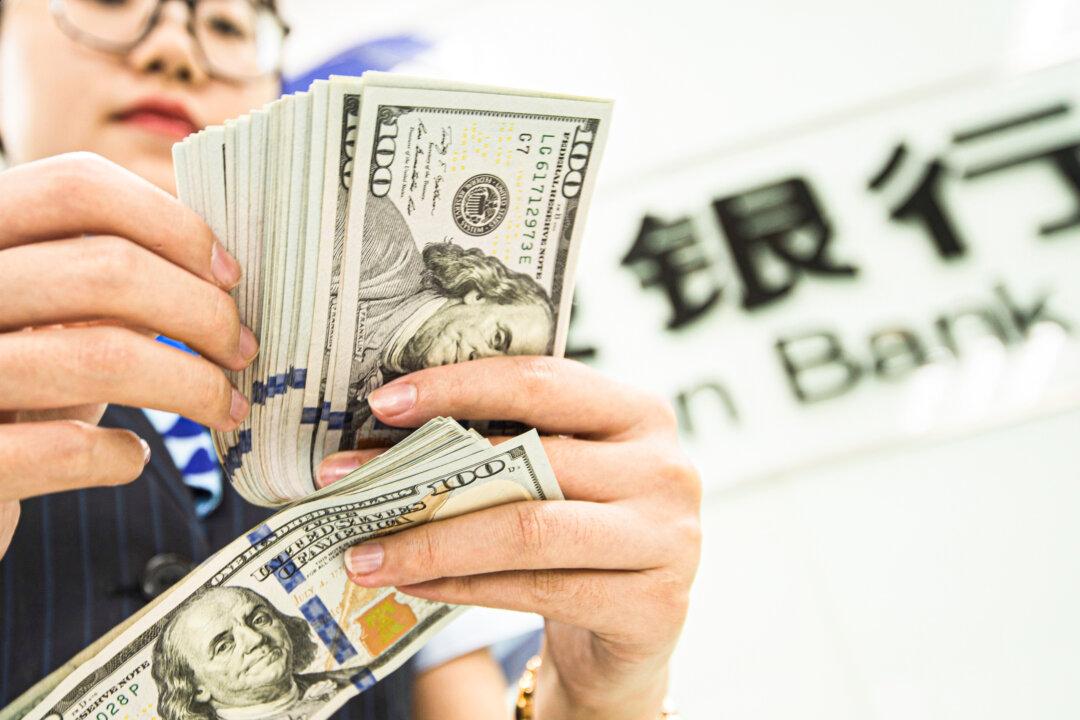Shares in Chinese banks plunged after Goldman Sachs downgraded some ratings due to high local government debt.
According to a July 11 Bloomberg report, shares in China’s banking sector are on the cusp of historically low valuations. Bloomberg Intelligence’s index of Chinese bank stocks is down 14 percent from this year’s high in May, wiping out $77 billion in market value.





